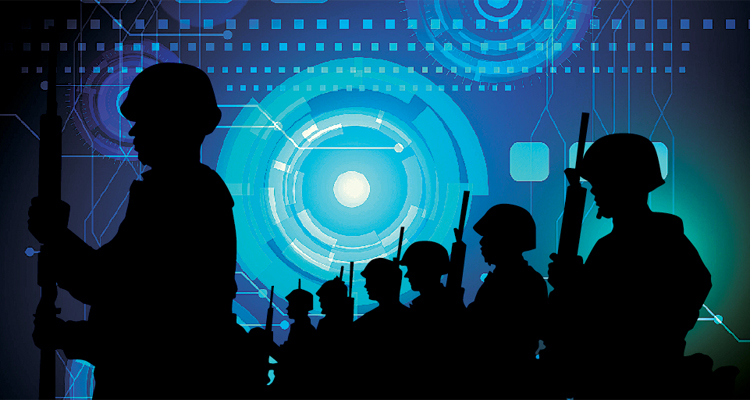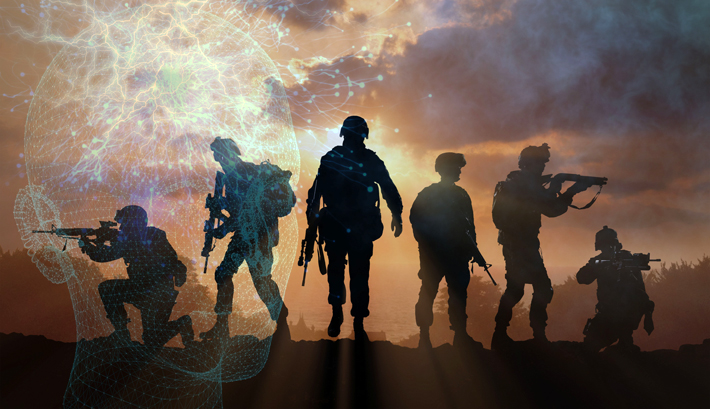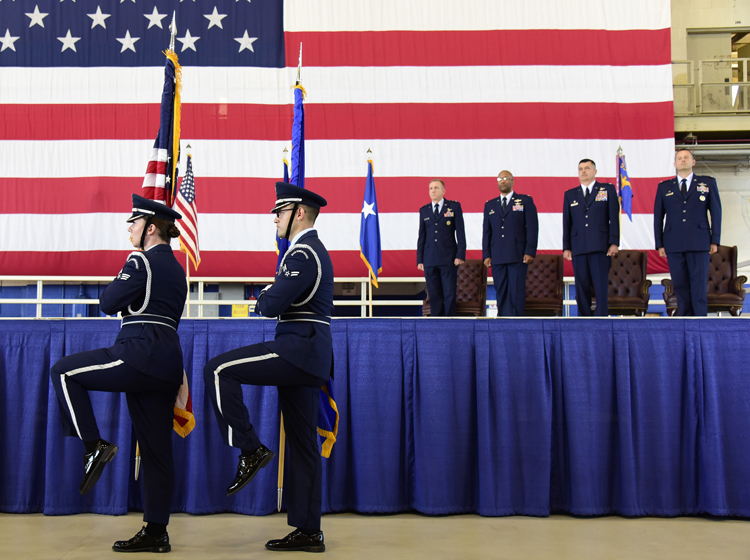INDIAN ARMED FORCES CHIEFS ON OUR RELENTLESS AND FOCUSED PUBLISHING EFFORTS

The insightful articles, inspiring narrations and analytical perspectives presented by the Editorial Team, establish an alluring connect with the reader. My compliments and best wishes to SP Guide Publications.

"Over the past 60 years, the growth of SP Guide Publications has mirrored the rising stature of Indian Navy. Its well-researched and informative magazines on Defence and Aerospace sector have served to shape an educated opinion of our military personnel, policy makers and the public alike. I wish SP's Publication team continued success, fair winds and following seas in all future endeavour!"

Since, its inception in 1964, SP Guide Publications has consistently demonstrated commitment to high-quality journalism in the aerospace and defence sectors, earning a well-deserved reputation as Asia's largest media house in this domain. I wish SP Guide Publications continued success in its pursuit of excellence.
Defence Cyber Command
Indian Government is planning to set up a 'proper' Cyber Command in the hinterland of Madhya Pradesh for providing a fighting edge to the proposed Theatre Commands
 |
The Author is Former Director General of Information Systems and A Special Forces Veteran, Indian Army |

India entered the top 10 of the global cyber security ranking of countries – a jump from 47 to 10 in the United Nation's ITU (International Telecommunication Union) Global Cyber-security Agenda (GCA). The US is ranked first followed by the UK, while China and Pakistan are ranked 33 and 79 respectively. Major credit for this goes to Lt General (Dr) Rajesh Pant currently the National Cyber Security Coordinator at the National Security Council Secretariat (NSCS). Pant says, "It is great news and an acknowledgement of multiple initiatives that we have taken along with CERT (Cyber Emergency Response Team). We have a national cyber security strategy that is awaiting cabinet nod and also recently operationalised the trusted source policy that asks all telecom companies to declare where they source their equipment."
Concurrently, newspaper reports quoting the Department of Military Affairs (DMA) in the Ministry of Defence (MoD) have indicated plans for sending up to 100 personnel to the US for training in the latest cyber security technology and role of artificial intelligence (AI) in future wars. The US has offered this training for giving first-hand experience on how to counter cyber warfare and handle AI under the Cyber Framework and Defence Cooperation Agreement 2016.
On September 28, 2018, Prime Minister Narendra Modi approved creation of the Defence Cyber Agency (DCA), the Defence Space Agency (DSA) and the Armed Forces Special Operations Division (AFSOD)
The Naresh Chandra Committee set up in July 2011 had recommended setting up of three tri-service commands; Cyber Command, Aerospace Command and Special Operations Command. The bureaucracy however in its typical characteristic style sat on the proposals for some years and downsized the proposed Commands just to show who the boss in governance is. Finally during the Combined Commanders' Conference held at Jodhpur Air Force Station on September 28, 2018, Prime Minister Narendra Modi approved creation of the Defence Cyber Agency (DCA), the Defence Space Agency (DSA) and the Armed Forces Special Operations Division (AFSOD).
The tasking of DCA has not been made public, though it broadly will be handling cyber security threats. However write-ups in media and analyst opinions suggest that the DCA, which will have the responsibility of framing a long-term policy for the security of military networks (including eliminating use of foreign hardware and software in the Armed Forces) and prepare a Cyber Warfare Doctrine, would have the capability to - hack into networks; mount surveillance operations; lay honeypots; recover deleted data from hard drives and cell phones; infiltrate encrypted communication channels, and; perform other complex objectives.

As is typical in the bureaucracy-controlled India, media blitz at the time of establishing such organisations is deafening. But later much is forgotten and subsequent bureaucratic approach is with a certain amount of contempt and disdain. Take the AFSOD which was established with much fanfare though its organisation even at the time of raising was an apology compared to a 'Division'. It continues in the same form - a forgotten organisation. Apparently there is no thinking of deploying its resources to bridge the disadvantage India has vis-à-vis China and Pakistan at sub-conventional level, as also for shaping the environment in India's favour in countries and regions of our strategic interest.
The proposed Cyber Command will ensure security of military communications and systems especially in forward formations
However with respect to the DCA, media now reports that government is planning to set up a "proper" Cyber Command in the hinterland of Madhya Pradesh for providing a fighting edge to the proposed Theatre Commands. Media further states that the proposed Cyber Command will ensure security of military communications and systems especially in forward formations like the "Siliguri Corps, Tezpur Corps and the Northern Command including the Ladakh Corps facing Tibet."
Whether Madhya Pradesh has been chosen for political reasons or bureaucratic 'understanding' that the Cyber Command must be located on ground equi-distant from the proposed Theatre Commands is not known. But hopefully the government is serious about establishing a proper Defence Cyber Command (DCC) or an Armed Forces Cyber Command (AFCC), not just basing the DCA in Madhya Pradesh with some cosmetic tinkering. Logically, the military should be a lead agency in the national cyber warfare effort like in the US and China. But that may not be possible for fear of exposure by the politico-bureaucratic dispensation, which was the very reason why the Army's Technical Support Division (TSD) was dismantled on pernicious grounds and not revived by successive governments.
China employs cyber attacks to disrupt information and substitute disinformation as part of Information Warfare
Technological capability provides the opportunity to wage incessant war by launching bits and bytes through cyberspace that can effectually destroy or cripple an adversary or potential adversary. Cyber attacking critical infrastructure can result in shutting down power grids across regions, turning off water supply, disrupting air and rail operations, disruption of oil pipelines and hydro projects, blocking banking/ATM systems, disrupting stock market exchanges and the like. China employs cyber attacks to disrupt information and substitute disinformation as part of Information Warfare. Also, important is the Chinese capability of 'seizing' command networks of the adversary that can create chaos during critical stages of battle.
Cyber security is becoming more and more vital for national security. Hackers, phishing, malware, viruses, automated tools, e-bombs, logic bombs, EMP / HPM attacks are threats that make critical infrastructure and distribution systems highly vulnerable. Incidental or deliberate damage can have serious impact on the economy and essential services. China's cyber attacks on our health infrastructure and vaccine producing facilities during the ongoing pandemic highlight the dangers to national security. Moreover, AI assisted cyber attacks can penetrate firewalls.
Cyber security is becoming more and more vital for national security as incidental or deliberate damage caused by cyber attacks can have serious impact on the economy and essential services
The US despite its top ranking in the United Nation's ITU GCA continues to suffer cyber attacks. US President Joe Biden recently ordered a probe into the ransom ware attack on a US IT Company on July 3, 2021 that targeted some 1,000 businesses. Russian President Vladimir Putin's recent interview with media shown live on TV was frequently disrupted due to cyber interference. There is no doubt that 100 per cent cyber security will remain a misnomer but nations must continue to strive for perfection in cyber warfare. The need for being pro-active and selectively demonstrate to the adversary capability of tit-for-tat is absolutely essential.

With respect to the 100 or so personnel proceeding to the US for training in cyber security technology and AI, The US Air Force on June 25, 2021 has established the '350 Spectrum Warfare Wing', first of its kind, to enable, equip and optimise the fielding of electromagnetic spectrum (EMS) capabilities with the aim of providing a sustainable and competitive advantage in the non-physical realm, and also provide maintenance, operational and technical expertise for electronic warfare support. The MoD could take up with US authorities, interaction of our personnel proceeding to US, for training with the 350 Spectrum Warfare Wing also.





